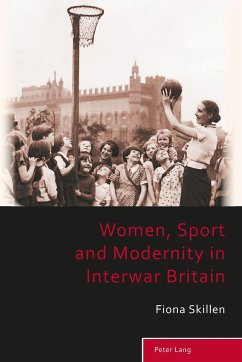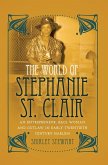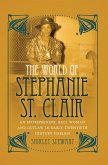This book offers a unique examination of women's increasing involvement in sport during the period 1919-1939. Focusing primarily on sites of participation, it analyses where and how women accessed sport and their participation across class, age and marital groups. It also demonstrates the diverse ways in which sport was incorporated into women's everyday lives, with particular emphasis on the important and yet often neglected area of informal participation, so fundamental to understandings of women's sport. The unique combination of in-depth studies, drawing on the voices of the women themselves through oral testimonies, and the tracing of broad national and international trends, contributes to an innovative and comprehensive exploration of the evolution of women's sports participation across Britain during this significant period.
«Skillen has here produced a study which provides an important contribution to the debate surrounding women and modernity; as well as one which both adds to the literature on women's sports and history and takes it in interesting new directions.» (Rafaelle Nicholson, Twentieth Century British History, 2014)








